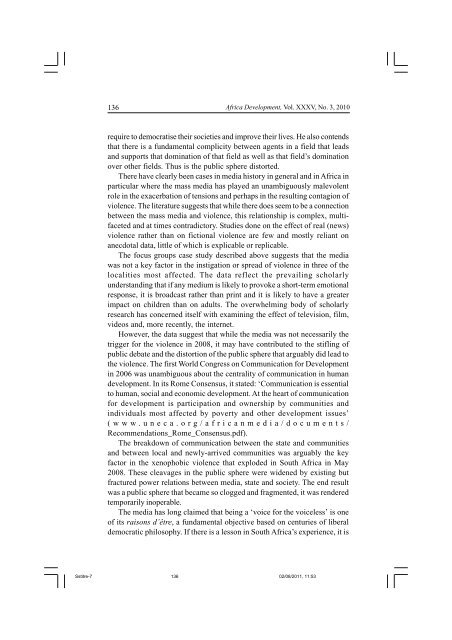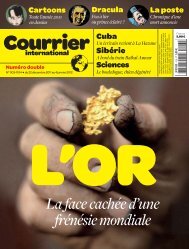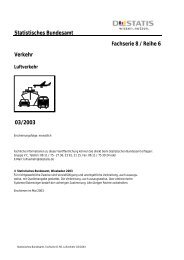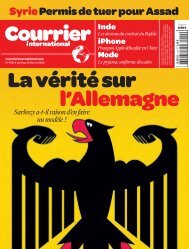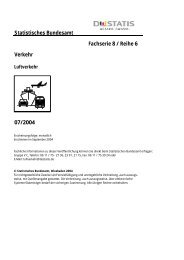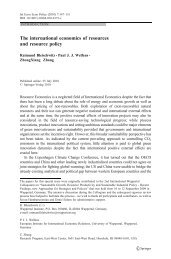lieux (publics) de ville » par les mots ou comment les murs - Index of
lieux (publics) de ville » par les mots ou comment les murs - Index of
lieux (publics) de ville » par les mots ou comment les murs - Index of
Create successful ePaper yourself
Turn your PDF publications into a flip-book with our unique Google optimized e-Paper software.
136 Africa Development, Vol. XXXV, No. 3, 2010<br />
require to <strong>de</strong>mocratise their societies and improve their lives. He also contends<br />
that there is a fundamental complicity between agents in a field that leads<br />
and supports that domination <strong>of</strong> that field as well as that field’s domination<br />
over other fields. Thus is the public sphere distorted.<br />
There have clearly been cases in media history in general and in Africa in<br />
<strong>par</strong>ticular where the mass media has played an unambigu<strong>ou</strong>sly malevolent<br />
role in the exacerbation <strong>of</strong> tensions and perhaps in the resulting contagion <strong>of</strong><br />
violence. The literature suggests that while there does seem to be a connection<br />
between the mass media and violence, this relationship is complex, multifaceted<br />
and at times contradictory. Studies done on the effect <strong>of</strong> real (news)<br />
violence rather than on fictional violence are few and mostly reliant on<br />
anecdotal data, little <strong>of</strong> which is explicable or replicable.<br />
The focus gr<strong>ou</strong>ps case study <strong>de</strong>scribed above suggests that the media<br />
was not a key factor in the instigation or spread <strong>of</strong> violence in three <strong>of</strong> the<br />
localities most affected. The data reflect the prevailing scholarly<br />
un<strong>de</strong>rstanding that if any medium is likely to provoke a short-term emotional<br />
response, it is broadcast rather than print and it is likely to have a greater<br />
impact on children than on adults. The overwhelming body <strong>of</strong> scholarly<br />
research has concerned itself with examining the effect <strong>of</strong> television, film,<br />
vi<strong>de</strong>os and, more recently, the internet.<br />
However, the data suggest that while the media was not necessarily the<br />
trigger for the violence in 2008, it may have contributed to the stifling <strong>of</strong><br />
public <strong>de</strong>bate and the distortion <strong>of</strong> the public sphere that arguably did lead to<br />
the violence. The first World Congress on Communication for Development<br />
in 2006 was unambigu<strong>ou</strong>s ab<strong>ou</strong>t the centrality <strong>of</strong> communication in human<br />
<strong>de</strong>velopment. In its Rome Consensus, it stated: ‘Communication is essential<br />
to human, social and economic <strong>de</strong>velopment. At the heart <strong>of</strong> communication<br />
for <strong>de</strong>velopment is <strong>par</strong>ticipation and ownership by communities and<br />
individuals most affected by poverty and other <strong>de</strong>velopment issues’<br />
(www.uneca.org/africanmedia/documents/<br />
Recommendations_Rome_Consensus.pdf).<br />
The breakdown <strong>of</strong> communication between the state and communities<br />
and between local and newly-arrived communities was arguably the key<br />
factor in the xenophobic violence that explo<strong>de</strong>d in S<strong>ou</strong>th Africa in May<br />
2008. These cleavages in the public sphere were wi<strong>de</strong>ned by existing but<br />
fractured power relations between media, state and society. The end result<br />
was a public sphere that became so clogged and fragmented, it was ren<strong>de</strong>red<br />
temporarily inoperable.<br />
The media has long claimed that being a ‘voice for the voice<strong>les</strong>s’ is one<br />
<strong>of</strong> its raisons d’être, a fundamental objective based on centuries <strong>of</strong> liberal<br />
<strong>de</strong>mocratic philosophy. If there is a <strong>les</strong>son in S<strong>ou</strong>th Africa’s experience, it is<br />
Sstitre-7 136<br />
02/08/2011, 11:53


